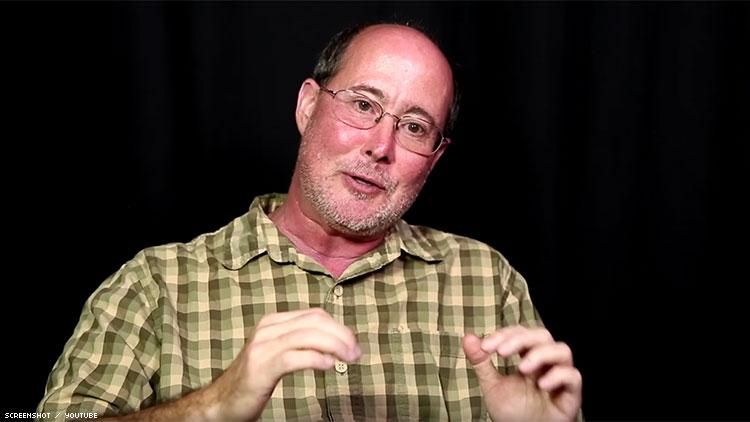Commons Clerk: I Had No Idea How Hard MPs Worked Until I Came To Parliament

As an MP, if you’re not on the government’s frontbench it can be difficult to effect real change.
Private Members’ Bills and Ten Minute Rule Motions allow those on the backbenches to bring the issues they care passionately about to the Commons chamber – and if they’re lucky, onto the statute book.
But the process – aspects of which are based on pot luck – can be complex and PMBs are only ever debated on Fridays, so time is very limited.
That’s where a dedicated team of Commons clerks, part of a vast army of behind-the-scenes staff who keep Parliament ticking over 24 hours a day, come in.
And after speaking to senior doorkeeper Sarah Binstead-Chapman on her unique role, HuffPost UK caught up with Farrah Bhatti, the Clerk of the Private Members’ Bill, to find out what her job entails.
As well as a weekly cycle of Ten Minute Rule motions, which allow backbenchers to make their case for potential new bills, Farrah also oversees the notorious ballot process which determines who will get the chance to debate their potential bill in Parliament.
She said: “We are limited to only 13 sitting Fridays in each Parliamentary session – not per year – so when we are in a two-year session like we are in now, it’s technically still only 13 sitting Fridays.
“The main issue is because time is so limited on Fridays, there’s a real premium on being able to be the first person to present your bill, because if you are first to present it means you’re first to pick your second reading date, which means you’re at the top of the queue, which means you are more likely to get time for debate, which means you’re more likely to get to committee stage and hopefully get through all the later legislative stages.
“The ballot happens at the start of the session and it’s essentially just like a lottery – the Chairman of Ways and Means Lindsay Hoyle will read out 20 names.

“We have a big goldfish bowl in the office filled with little wooden balls that are numbered. Members come and sign a book, pick their number and put their name next to it, and then the draw happens.
“It’s like a ‘who’s going to host the football world cup’ type of draw.
“You often get someone from the government and opposition whips office attending to see which of their members has come top, and it’s also webcast live.
“I was tense this time because it was the first time I was overseeing it, but it’s usually over pretty quickly. We have about three people checking the names as the numbers are read out – because obviously you don’t want to mess that up.”
The 20 names drawn are the lucky members who get to present their bills at the start of a Parliamentary session and face the best chance of changing the law.
Those who aren’t quite so fortunate face a more arduous task.
Farrah said: “Sometimes during the ballot week, members sleep overnight to be first in the queue the next day to come in and give notice of presentation of their bills.
This year just gone we had a couple of members who camped out on rotation for about four nights, so they were there the whole week to be first in the queue to get going.
“We have a little conference room that we usually use for meetings, but sometimes it’s taken over by those members.
“So ballot week is just horrendously busy for us.”

A key part of Farrah’s job is helping MPs think of new and inventive ways to move the issues they are passionate about up the agenda.
“I am one of those lucky people who works here who gets to be in a position where I am genuinely helping members do the things they really, really care about,” she said.
“Obviously they all care about their constituencies and party politics – they wouldn’t be here if they didn’t – but often the things they get really passionate about are the things they have been campaigning on for a long time, or something that has been triggered by a really unexpected event in their constituency.
“They obviously have the option of applying for time to debate things in the chamber, but where PMBs really make a difference is it’s an opportunity for them to actually set the legislative agenda.”
One MP who utilised the power of Twitter and Facebook to help further his cause was Labour’s Chris Bryant, whose PMB on clamping down on assaults on emergency service workers won cross-party support.
Farrah said: “He used a Twitter poll to engage his constituents and the wider community on what bill he should introduce.
The winning Bill – in both the Rhondda and the UK – was the Assaults on
Emergency Staff Bill. I will present it in the Commons next week. pic.twitter.com/7d3Xl9lGgH
— Chris Bryant (@RhonddaBryant) July 12, 2017
“He put out a shortlist of different bills and the one that won was assaults on emergency workers. That was a bill similar to one introduced by another member in the previous session before the election.
“You will often find that with PMBs it takes a few iterations. Someone might do it under the Ten Minute Rule in one session, or it doesn’t get very far because it’s too far down the list on a Friday, but it builds up some enthusiasm among stakeholders and political parties, and someone else might pick it up in the next session.”
Farrah spends most of her time talking to members and their staff to work through the details of proposed bills, including their titles and content.
“I also brief members on the choreography of the chamber, because for Ten Minute Rule bills there can be a lot of bowing involved,” she said.
“I have only been doing this job since April, and since that time I have had both really, really experienced members – former ministers – coming to me, as well as brand new 2017 members about Ten Minute Rule bills or presentation bills.
“Both sets, no matter how experienced they are in more general Parliamentary terms, can still find the PMB procedure quite baffling. It doesn’t necessarily make a difference how long you’ve been here.
“It’s still early days, but I think in due course the thing that will be most memorable for me is having supported a member in getting something onto the statute book. There are a few bills this session that seem likely to make it through.”

Farrah, who studied chemistry at university and worked for a brief period in a laboratory before deciding a career in Parliament was for her, enjoys getting to know each MP and what makes them tick.
“The ballot members are 20 different backbenchers, they’ve all got completely different personalities,” she said.
“There are many lovely members here and I don’t think anyone should be surprised by that.
“On the whole, they are really, really appreciative of the support that they get from us, and it’s just so nice to be able to work with them on things that they care so much about.
“For me, that’s the most rewarding part of this job. You really get to understand what motivates people, the things that make them feel passionate. I genuinely don’t think I have a favourite MP, because there’s so many I love.
“I think it’s really hard for anyone out there to actually understand how hard MPs work until you see it up close and personal. I had no idea until I started working here.
“Looking at what they have to do is enough to put me off doing it as a career. You have to be so dedicated.”
Does she get frustrated when she sees PMBs she has worked with members on being filibustered?
“I imagine it’s probably more frustrating for the members than it is for me. I haven’t experienced much of it so far in this Parliament. We have had three sitting Fridays so far.
“I can see it from both sides though – on the one hand, the members who are pushing for this legislation to go through are really keen to have a quick debate so they can draw a line under the second reading stage and move on, and give others further down the list the chance to be debated.
“But at the same time, a lot of these bills are making quite substantive changes, and the whole point of Parliamentary procedure is to protect the rights of the minority and level out the playing field.
“I wouldn’t comment on the motivations of any individual members. They might appear to be engaged in what others think of as filibustering because actually they really do want to have a proper hearing for the issues being raised in the bill.”

Like many Commons staffers, Farrah’s job involves a regular helping of late nights.
She said: “The public bill office is one of the chamber-supporting procedural offices, so it maintains a staff during the evenings when the house is in session, so we are all on a rota system for the evening shift.
“Two of us are on on any given night until a short period of time after the house rises. It can involve very late nights, and often the first thing you do if you’re working an evening shift is keep an eye out to see how many statements there are going to be, or how many UQs are granted, and work out how much later things are likely to go on.
“And when our day ends, our colleagues in the procedural publishing unit are just getting started, because all of the material we’ve been generating during the day in terms of names being added to amendments or new material to bills all has to be published overnight, and papers made ready for the morning sessions.
“It’s a 24-hour operation.”
For an hour once a fortnight, Farrah and many of her colleagues get to perform a more front-of-house role.

“Every two weeks I get to do Table Duty – essentially acting as one of the three clerks that sit in front of the Speaker,” she said.
“At the start of the day it’s always the most senior clerks who will do it, but for the rest of the day we are all on shift.
“I get my gown and ribboned collar on – we no longer wear the wigs – and sit there for an hour and experience what it’s like to be right in the centre of those debates.
“You’re there to maintain a watching eye on what’s going on, brief the Speaker on any relevant issues, keep records of what’s happening, and if it’s a debate that requires time limits, to operate the clock as well.
“The first thing anyone visiting the chamber for the first time always says is that it’s a lot smaller than it looks on TV, and it feels even smaller when you are sat there at the table and it’s really full of members. That’s quite nerve-wracking.
“I’ve done it once solo and that was the most terrifying thing I’ve ever done. It all went really smoothly, but the first time you’re there as the sole person responsible, in the back of your mind you’re thinking ’Oh my goodness, what happens if something terrible happens or you make a mistake?”
Table clerks also get to administer divisions – when MPs vote.
Farrah added: “Because I sit in the chamber on Fridays when PMBs are being debated – I was in there recently for the Parliamentary Constituencies (Amendment) Bill – I was the person stood there with the gown on taking the piece of paper with the result of the vote on it from the tellers to the Speaker.
“That was quite fun. Obviously the first thing I did was send the video clip round to everyone I knew.”
www.huffingtonpost.co.uk/entry/commons-clerk-i-had-no-idea-how-hard-mps-worked-until-i-came-to-parliament_uk_5a392cd4e4b0860bf4ab408f












 unicef.uk/huffpost
unicef.uk/huffpost


 ANOTHER LIE.
ANOTHER LIE.  SWEET CAKES.
SWEET CAKES.  TOO OLD.
TOO OLD. 









